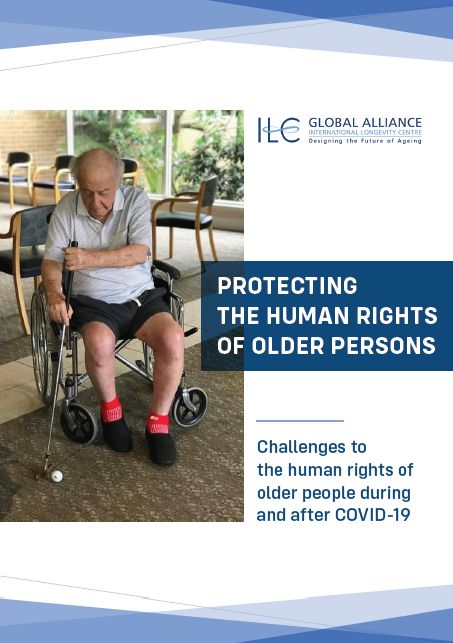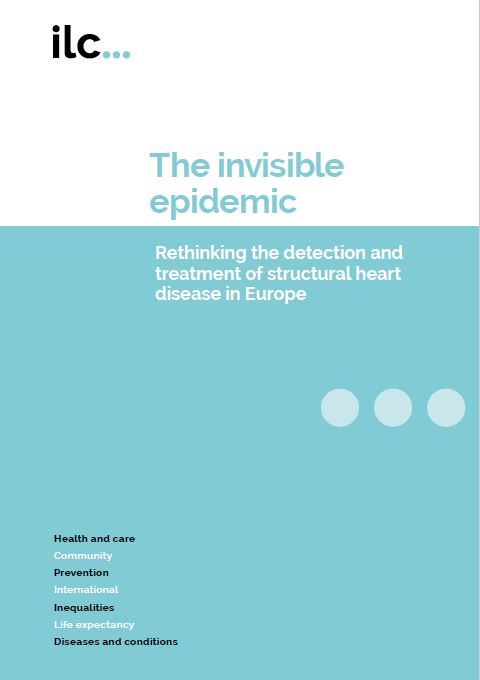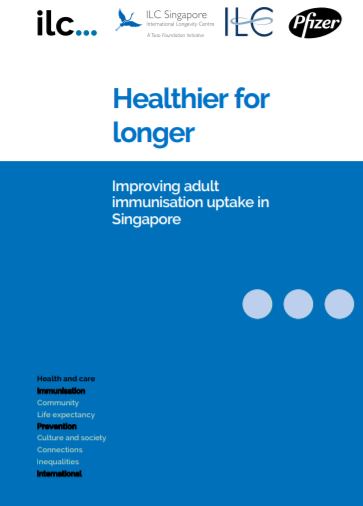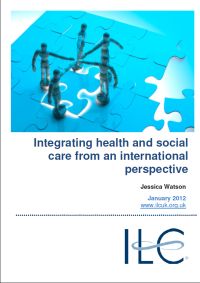Health and Healthy Ageing

Improvements in living standards and healthcare have resulted in increased life expectancy is increasing across the globe.
However, despite many older people being far healthier than previous generations, there is still a gap between life expectancy and healthy life expectancy – that is years lived in good health.
This is particularly important given that pension age is rising in many countries and in some there is a gap between current predicted healthy life expectancy and future pension age. For example, in the UK, the state pension age will rise to 68, but a 2010 report on health inequalities in England suggested that nearly 75% of the population will not be in good enough health to work until the age of 68.
One of ILC’s main goals is to further the concept and implementation of “Healthy Ageing”. What exactly is “Healthy Ageing”? The European Union funded healthy ageing project defined healthy ageing as:
“the process of optimising equal opportunities for health in order to enable older people to take an active part in society and to enjoy an independent and good quality of life.
ILC sees healthy ageing as a holistic and all encompassing concept, which includes health related interventions as well as action in other areas which can impact health.
Activities to further healthy ageing could include:
*Access to healthcare services
*Health promotion
*Preventative healthcare
*Physical exercise and nutrition strategies
*Reducing age discrimination in health, employment and education policy
*Adequate pensions
Preventative interventions and health promotion are particularly important because of their potential impact on chronic diseases. While we hear every day that healthcare costs are increasing because of an ageing population, much of the increased demand on healthcare resources is related to chronic disease and not age per se. If chronic diseases can be prevented, their onset delayed or even just managed well, this can have a positive impact on the lives of older people as well as a potential cost savings for healthcare systems.
Reversing the lens - a look at good work and healthy ageing in Denmark
Some of the ILC-UK team visited Copenhagen for a few days last week to attend and present at the FIP World Congress of Pharmacy and Pharmaceutical Science, and to discuss Danish working culture with some Danish companies.
11th September 2025
Ageing is a global epidemic and one that we all (organisations, governments and individuals) need to better prepare for.
15th August 2025
Event summary – Healthy ageing and longevity in Europe: How do we prepare for the 100-year life?
In partnership with ILC-UK, the ILC Europe Network hosted its inaugural conference in Brussels on 6 March 2024 to explore the challenges and opportunities associated with an ageing European society. Other ILC Global Alliance members in attendance included ILC-Czech Republic, ILC-France and ILC-Netherlands.
March 2024
White paper Arts in Health in the Netherlands: Art deserves a prominent place in healthcare
Much more attention needs to be paid to the positive effects of the use of art in healthcare. Art makes people feel better and helps them to better cope with their illness. Art can also mean a lot in the social domain and prevention, and in shortening hospital admissions.
February 2024
The first Global Citizen Science for Health conference was held from 29 October to 1 November 2023. This is the registration of the keynote "The Participatory Turn in Health Research: Its Roots, Methods, Ethics, Validity and Future" by professor Dr Tineke Abma.
January 2024
With contributions from 21 authors, the book "Prevention of frailty among older persons in Japan: A community-wide approach" reflects the decades of first-hand experience of Prof. Tsujii, a former senior official at the Ministry of Health, Labour and Welfare.
16 October 2023
Silver Empowerment: a book on empowerment of elderly people
See ageing as a source of power instead of as a sign of decline and vulnerability, is the message of the newly published book “Silver Empowerment”, in which scientists from various disciplines discuss ways of improving self-reliance of elderly people. Promoting an age-friendly society is the main topic.
21 Abril 2023
ILCs reunited at the IFA’s 16th Global Conference on Ageing in Bangkok
Members of the ILC Global Alliance got together at the IFA’s 16th Global Conference on Ageing in Bangkok, Thailand, last June. Representatives of ILCs from Canada, Singapore, United Kingdom, South Africa and Australia, as well as ILC GA Secretariat Silvia Perel-Levin, attended the conference.
June 2023
Zaiya Takahashi and Masako Osako gave a presentation, “Japanese traditional/contemporary views of life and death ('Shiseikan') and their implications for the end-of-life care”, at IAGG Asia Conference in Yokohama, Japan.
12 June 2023
Dr. Linda P. Fried, the Director of the Robert N. Butler Columbia Aging Center and the Dean of the Mailman School of Public Health at Columbia University, delivered an Expert Reflection at the event titled "The UN Decade of Healthy Ageing: Health for All by Adding Life to Years." She spoke in her capacity as the Co-chair of the US National Academy of Medicine’s Global Roadmap for Healthy Longevity Commission.
May 2023
Living a Fulfilling Life at 90: Interview with Keiko Higuchi, Japan’s Leading Social Commentator
Ms. Masako Osako, Executive Director of ILC Global Alliance Secretariat, recently sat down with Ms. Keiko Higuchi, President (rijicho) of a Japan-based NPO, Women's Association for the Better Aging Society (WABAS) and a leading social commentator and popular author in Japan. At 90 years old, Higuchi has recently published a new book titled, “Hold on! I am still alive and thriving at age 90,” which is a sequel to her enormously popular book published in 2019, “Ready, set, go! You are now becoming an “old-old person.”
15 March 2023
Update on the Physiotherapy Assessment Camp (PAC) by ILC-India
From 2018, ILC-India started conducting this programme called “Physiotherapy Assessment Camps” in different parts of Pune city in collaboration with DES Brijlal Jindal College of Physiotherapy. Till date, around 1000 seniors have been covered under this programme, including follow-up visits.
November 2022
The “What Do Older People Want from their Healthcare?” project, conducted by the National Ageing Research Institute (NARI) on behalf of the Victorian Department of Health (DH), Australia, provides valuable insights into what older Victorians want, need and expect across each domain of ageing and highlights how this changes across the care continuum.
20th May 2022
The COVID Revolution: The resilience of older adults during the COVID-19 Pandemic
ILC-Japan has compiled the results of interviews with older adults in Japan conducted during the COVID-19 pandemic.
7th January 2022
Activity promotes healthy retirement
Below is a summary of Françoise Forette's presentation at the conference: "Make France a fully-fledged society" on 26 October 2021, which demonstrated how much the maintenance in activity, professional or otherwise, is beneficial to both individuals and society.
26 October 2021
ILC-I host national webinar series on “Ageing and Health”
Due to the COVID-19 pandemic and subsequent restrictions on social gatherings, ILC-I have been working online since April 2020. In order to stay connected with seniors as well as researchers, doctors and students working on ageing, ILC-I has conducted eighteen webinars, supported under CSR, as part of a national webinar series.
8th October 2021
Creating a socially just, inclusive and age-friendly city in Newcastle, Australia
The Hunter Ageing Alliance and the City of Newcastle came together in August 2021 to facilitate a community engagement workshop on the topic of developing an Age Friendly City.
5th August 2021
Dr. Kiran Rabheru of ILC Canada spoke about the threats faced by older persons during COVID-19 recovery and provided a series of recommendations to governments to combat these issues.
9th July 2021
The Stakeholder Group on Ageing organized a side event at the HLPF about the COVID-19 pandemic and its effect on governmental policymaking for older persons. The panelists also discussed how older persons can increase their political leverage and combat ageism.
6th July 2021
How can we deliver prevention in an ageing world
As part of their Delivering prevention in an ageing world programme, ILC-UK are asking for input on how we can deliver prevention in an ageing world.
16th April 2021
How to address loneliness and improve worsening health conditions due to COVID-19 pandemic
A new global project titled "Re-imagining Environments for Connection and Engagement: Testing Actions for Social Prescribing in Natural Spaces" (RECETAS) will address the loneliness created by the COVID-19 pandemic through interaction with nature in six cities in Europe, Latin America, and Australia.
9th April 2021
New project launched in the Czech Republic to help older adults exercise from home
A new project, titled: “PERMANENTO – everyday functional exercise for older adults” is designed to help older adults to maintain the fundamental components of functional fitness. The main goal is to contribute to a broader perception of physical activity, especially its effects on the ageing processes and quality of life.
7th April 2021
Healthy Ageing at very old ages
Professor Julie Byles, Head of ILC-Australia presents on ‘Healthy Ageing at very old ages – perspectives of women from the Australian Longitudinal Study on Women’s Health, at the 53rd Annual Australian Association of Gerontology (AAG) Conference in 2020.
29th January 2021
ILC-GA Position Statement on COVID-19
Following a meeting of its members on Thursday, 7 May 2020, the ILC Global Alliance has prepared a Position Statement on COVID-19.
7th May 2020
International Longevity Centre Adult Vaccination Workshop in Singapore
ILC Singapore at Tsao Foundation, in partnership with the ILC UK will be holding a two day workshop on 14-15 October 2019 in Singapore to understand the state of policies and practices of adult vaccination in the UK, Hong Kong and Singapore.
29th August 2019
Active Aging - Promoting Health, Preventing Illness - ILC Brazil Symposium
On 8 and 9 August 2019, ILC Brazil - and many of its partners - will be holding the Active Aging - Promoting Health, Preventing Illness symposium at Unibes auditorium in São Paulo.
15th July 2019
Global Incontinence Forum takes place in Rome
Incontinence – a public health issue to be dealt with using a life-course approach
18th April 2018
Transnational Law Summit at King’s College London discusses ageing and inequalities
ILC-BR President Alexandre Kalache bringing ageing to the Transnational Law Summit
13th April 2018
Technical visit of ILC-BR technical director to Mexico
Ina Voelcker participated in the IFA Diabetic Retinopathy Barometer Workshop for Latin America ILC-BR and gave a presentation at the National Institute for Geriatrics.
9th April 2018
The importance of immunization along the life course
On October 5, ILC-BR organized a seminar to discuss the importance of vaccination across all ages. The seminar was held at Iamspe, the Institute for Medical Assistance for Public Servants of the State of Sao Paulo.
7th October 2017
Implementation of the Sustainable Development Goals discussed in Civil Society Meeting in Brasília
Civicus and IDS (Instituto de Democracia e Sustentabilidade), with support of IABS (Instituto Brasileiro de Desenvolvimento e Sustentabilidade) brought together about 20 representatives of Brazilian CSOs.
16th December 2016
Healthy Living – Seniors show the Way!
A one day workshop on “Orientation of Seniors as Volunteers for the Niramay Arogya Seva Project (Healthy Living)” was jointly organized by the Association of Senior Citizens’ Organisations of Pune (ASCOP) and the International Longevity Centre-India (ILC-I) with the support of GHARDA CHEMICALS LTD on the 3rd of August 2016 in Pune.
29th September 2016
Ethics of care: The theory of being present
ILC South Africa, the South African Care Forum and North-West University (Optentia Research Focus Area) with the The Albertina and Walter Sisulu Institute of Ageing in Africa (IAA), University of Cape Town presented two workshops (in Johannesburg and Cape Town) on Presence and Attentiveness in Care during February and March 2016.
27th May 2016
UN INIA(Malta) & ILC-I’s international training programme on “Social Gerontology”
The International Longevity Centre-India (ILC-I) is the Satellite Centre of the United Nations’ International Institute on Ageing, Malta for the SAARC region.
21st January 2016
ILC- France announce the launch of CLIC PREVENTION SANTE
ILC- France is proud to announce the launch of CLIC PREVENTION SANTE, an online health prevention tool for all ages developed by ILC France and sponsored by KLESIA ( pension fund ).
25th November 2015
ILC Japan is to host a public symposium entitled “Toward a Satisfactory Life Farewell” in Tokyo
The symposium, to be held on 6th June 2015, will explore an increasingly influential view in Japan that preparing for one’s departure from life should be an integral component of one’s life planning.
28th May 2015
The Late Dr. S. D. Gokhale Memorial Lecture Series
This lecture series had four lectures from the 21st of September 2013 to the 15th of January 2014, the anniversary of the detah of DR S D Gokhale. Two further lectures were held on the 22nd of October 2013 and the 4th of December 2013.
25th November 2014
The International Longevity Centre-India (ILC-I) organized a Mini Walkathon of senior citizens to mark the World Elder Abuse Awareness Day on the 15th of June 2014 in Pune.
25th June 2014
Bradesco Seguros Longevity Awards 2013
For the third consecutive year, one of Brazil's largest financial services companies, Bradesco Seguros (BS) granted on October 15 2013 in Sao Paulo two national awards for excellence – one in journalism and one for outstanding life stories of older persons.
4th November 2013
Globally, COVID-19 has led to debilitating effects and posed significant human rights challenges for older persons.
Structural heart disease (SHD) is a set of cardiovascular conditions that affect the structure of the valves, atria, ventricles and blood vessels in the heart.
This report was made in collaboration with ILC Singapore and explores the relationship between Singapore’s ageing population and adult vaccination.
Current societal and financial challenges are demanding a revision of how health budgets are spent with a view to increasing both savings and sustainability.
This review of evidence and policy across Europe from ILC-UK uncovers a hidden burden of constipation affecting older people.
An ILC-UK report examining the ideas, issues and challenges of the integration of health and social care services.
ILC-Japan published this report as a tribute to Dr. Robert Butler, the father of gerontology and the founder of ILC Global Alliance.
This report highlights the omission of ageing and of Alzheimer’s disease and other related dementias from the current focus of the UN High-Level Meeting on Non-Communicable Diseases, taking place on 19th and 20th September 2011.
A background paper on innovative policy reforms to facilitate active and healthy ageing in OECD countries.
A report from a dinner debate with the International Longevity Centre Global Alliance, Cape Town
Functional foods can play a role in supporting older people’s health says ILC-UK report.
ILCSA was admitted to the ILC Global Alliance in June 2005. It is operated within The Albertina and Walter Sisulu Institute of Ageing in Africa (IAA) in the Faculty of Health Sciences at the University of Cape Town.
The International Handbook on Aging. Current research and developments.
Older Europeans are not well vaccinated and therefore not well protected against vaccine preventable diseases. Identifying and developing strategies for overcoming barriers to vaccination is therefore an important health policy goal for Europe.
This ILC-France report describes demographic data and examines the causes of the increase in longevity and implications on working lives.
An ILC-Israel executive summary of the longitudinal study on on the effects of coping patterns with deterioration in health on successful aging.
In a super-aging society Japan it is predicted that people aged 75 or older living alone and elderly couple-only households will go on increasing.
Françoise Forette, CEO of ILC-France, explores the concept of functional dependency and its link with the increase of longevity.
This ILC-UK policy brief is the third and final publication of a series focusing on policies addressing obesity in the UK.
the international Longevity Centre- India has come out with this book to understand this global phenomenon of 'ageing' and its implications in the right spirit and perspective.
Obesity is a major public health problem in the UK. This report provides a comprehensive review of innovations and problems in tackling this challenge in light of devolution.
A report on a pilot study towards a health intervention under the Study to Understand and Foster the Functioning and Involvement of Contributive Elders (SUFFICE) project has been released.
The mistaken belief persists that, except for the flu vaccine, children should be the primary recipients of this important area of primary disease prevention.

























